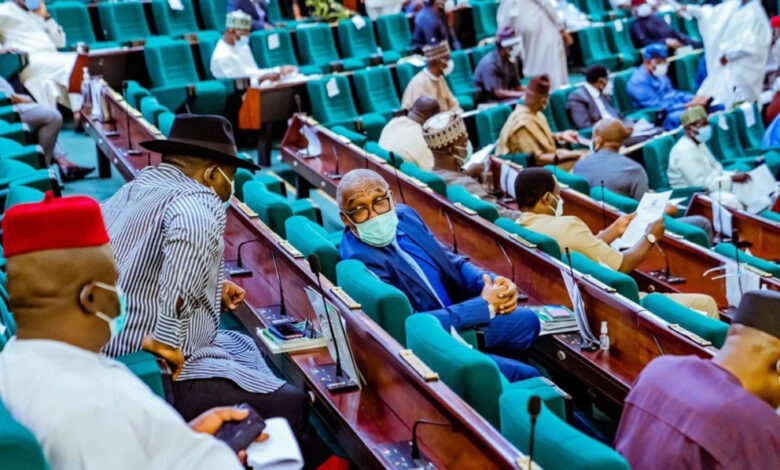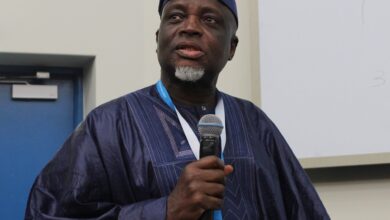EXPLAINER: Proposed Creation of 31 New States in Nigeria and the Procedures Involved

By: Oluwaseye Ogunsanya
Last Thursday, the House of Representatives Committee on Constitutional Review announced that it has received proposals for the creation of 31 new states across the federation.
Benjamin Kalu, the Deputy Speaker, who presided over the plenary session and also doubles as the chairman of the committee read the committee’s letter detailing the proposed states.
“This is to inform members that the House of Representatives Committee on the Review of the Constitution of the Federal Republic of Nigeria, 1999 (as altered), has received legislative proposals for the creation of states and local governments…” the letter reads in part.
This proposal has since ignited significant discourse regarding governance, representation, and resource allocation among Nigerians and critical stakeholders.
This article explains the intricacies of state creation in Nigeria as well as the reactions of several stakeholders to this development.
HISTORY OF STATE CREATION IN NIGERIA
Nigeria is comprised of 36 states, but their creation was a gradual process rather than a simultaneous event. Initially, from 1960 to 1966, the country was divided into four regions: Northern, Western, Eastern, and Mid-Western. The transformation began in 1967 under General Yakubu Gowon, who dissolved the regions and established 12 states.
Almost a decade later, in 1976, General Murtala Mohammed created seven additional states, including the Federal Capital Territory, Abuja, from Niger State. This raised the total number of states to 19.
In 1987, under General Ibrahim Babangida, two more states—Akwa Ibom and Katsina—were added, bringing the total to 21. The number increased again in 1991 when nine states were created, resulting in 30 states.
Finally, on October 1, 1996, General Sani Abacha established six more states based on recommendations from the National Constitutional Conference, leading to the current total of 36 states. The newly created states included Ebonyi, Bayelsa, Nasarawa, Zamfara, Gombe, and Ekiti.
WHAT ARE THE PROPOSED NEW STATES?
The proposals encompass various geopolitical zones, aiming for equitable representation across the country:
- North-Central: Okun, Okura, and Confluence states in Kogi State; Benue Ala, Apa-Agba, and Apa in Benue State; and Federal Capital Territory State.
- North-East: There are Amana State from present-day Adamawa State, Katagum State from Bauchi State, Savannah State from Borno State, and Muri State from Taraba State.
- North-West: the proposed states are New Kaduna and Gurara from Kaduna State, Tiga and Ari from Kano State, and Kainji from Kebbi State.
- South-East: There are five requests: Etiti, Orashi, Adada, Orlu and Aba States.
- South-West: Proposals include Torumbe from Ondo, Ibadan from Oyo, Lagoon from Lagos, Lagoon State from Ogun, Ijebu from Ogun, and Oke Ogun/Ife-Ijesha from Oyo, Ogun, and Osun states.
- South-South: There are four requests from the South-south region, comprising Ogoja from Cross River, Warri from Delta, and Ori and Obolo from Rivers State.
This expansion, if approved, would bring Nigeria’s total number of states to 67.
WHAT IS THE PROCEDURE FOR CREATING NEW STATES?
The Nigerian Constitution provides and outlines a multi-step process for the creation of new states in Section 8(1): it states as follows: An act of the national assembly for the purpose of creating a new state shall only be passed if:
“(a) a request, supported by at least two-thirds majority of members (representing the area demanding the creation of the new State) in each of the following, namely;
“(i) the Senate and the House of Representatives,
“(ii) the House of Assembly in respect of the area, and
“(iii) the local government councils in respect of the area are received by the National Assembly;
“(b) a proposal for the creation of the State is thereafter approved in a referendum by at least two-thirds majority of the people of the area where the demand for creation of the State originated;
“(c) the result of the referendum is then approved by a simple majority of all the States of the Federation supported by a simple majority of members of the Houses of Assembly; and
“(d) the proposal is approved by a resolution passed by a two-thirds majority of members of each House of the National Assembly.”
WHAT ARE THE REACTIONS TO THIS PROPOSAL?
The political climate in Nigeria as it relates to state creation is wrapped with contention. While some see the proposal as a means to enhance representation and address regional disparities, others view it as a potential source of conflict and financial strain.
Shehu Sani, a former senator from Kaduna Central, criticized the proposal as “ironic and comical,” pointing out that many existing states are heavily reliant on federal allocations for their survival. “While many states are dependent on federal allocation for their survival, the House of Representatives proposal for 31 states is ironic and comical. Politicians just want to carve out mini colonies for themselves,” Sani remarked on his social media platform. This sentiment is echoed by numerous Nigerians who argue that instead of creating new states, the government should focus on restructuring the existing ones. Afenifere, a prominent Yoruba socio-political group, contends that the proposal contradicts the call for true federalism, stating, “This initiative appears to be a mere political exercise that will further weaken governance and deepen economic inefficiencies.”
Reactions also vary significantly across regions. While some advocate for the creation of new states as a means to foster development and address marginalization, others argue for equity. The South-East, which currently has only five states, has been particularly vocal. Ezechi Chukwu, National Publicity Secretary of Ohanaeze Ndigbo, articulated the region’s frustrations, saying, “South-East deserves more states than any other zone in the country because it has been short-changed over the years.” In contrast, the Pan-Niger Delta Forum (PANDEF) argues that state creation should be approached with caution. Spokesperson Christopher Ominimini emphasized, “If the creation of more states became necessary, it should be done equally across the board to level up with the North-West, which has seven states.”
Legal experts have also weighed in on the implications of the proposal with Chief Mike Ozekhome, a Senior Advocate of Nigeria, describing the initiative as a “wasteful” and “needless”. He also criticized the government for considering state creation amid pressing socio-economic challenges.
“How can they be talking about creating new states when hunger, starvation, squalor, and melancholy engulf the inhabitants of the present mini-states that literally beg for crumbs from Abuja’s table?” he questioned. The senior lawyer advised that Nigeria only needs two key measures to address the inherent injustices in its federal system and move toward development which is the creation of one additional state in the South East to bring parity with other regions and a brand-new Constitution that is “legitimate, people-driven, credible, and referendum-compliant, to correct deep fault lines and a lopsided federation where some states are mere consumers of federal allocation without knowing how to internally generate revenue.”
Ozekhome also called on the National Assembly to immediately drop what he described as a “provocative” venture and instead focus on addressing Nigeria’s socio-political and economic challenges.
The proposals have also been deemed inadequate by legislative officials. The spokesperson for the House of Representatives, Akin Rotimi clarified that the proposals submitted do not yet constitute a parliamentary resolution, emphasizing that they must undergo thorough scrutiny and public hearings before any constitutional changes can be made. “These submissions will undergo thorough legislative scrutiny, including public hearings, stakeholder engagements, and multiple levels of approval,” the spokesperson stated. Moreover, reports indicate that many of these proposals did not adhere to the constitutional requirements outlined in Section 8, which necessitates collecting signatures from at least two-thirds of the elected representatives from the areas affected. A lawmaker commented, “None of this was done. That kills the proposals.”
Similarly, the Deputy Speaker in a statement issued by his media office also clarified that the proposal was for 30 new states and not 31 as erroneously reported in the media. He explained that to create a new state, the constitution requires a two-thirds majority vote in the Senate, the House of Representatives, State Houses of Assembly, and local governments.
Kalu said that parliament was committed to following the procedure and is inviting the applicants to resubmit their proposals once they’ve complied with the constitutional guidelines.
“There are constitutional procedures in section 8 subsection 1 to 3 on how this application should be made. As we speak, none of these 30 proposals have met the requirements of Section 8 and that was why we decided to bring it to the notice of Nigerians that your application before us is ineffective.
“Therefore, you need to comply with Section 8 so that when we don’t consider the state creation request, you will know where it emanated from. So, the notice to the public is that you have between now and March 5 to enable you cure the gaps in your application for state creation.”
CONCLUSION
As the debate continues on the proposal to create 31 new states in Nigeria, it remains clear it has not only created divided opinions but has also highlighted deeper issues within Nigeria’s governance structure. With calls for a more equitable distribution of resources and a true federalist approach gaining momentum, the future of this proposal remains uncertain. Political leaders and citizens alike will be watching closely as the House of Representatives navigates this contentious issue.




